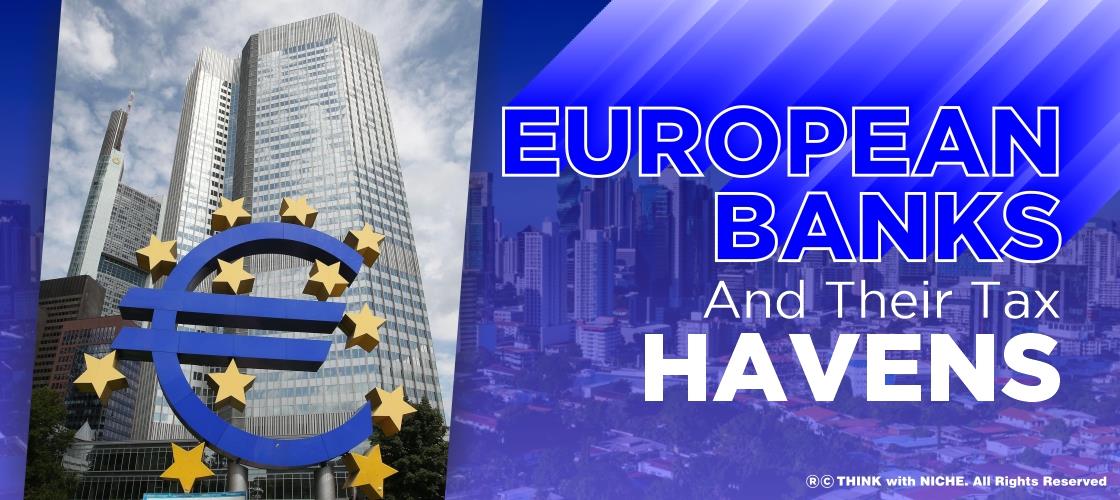European Banks And Their Tax Havens

News Synopsis
Latest Updated on 13 January 2023
Top European Banks continue to use tax havens to record parts of profits a trend that hasn't altered much since 2014 despite the requirement for country-by-country disclosures according to a report released on Monday by the EU Tax Observatory.
Regardless of the fact that few people were working there the independent research organization co-financed by the European Union said that reports from 36 major European banks revealed they recorded a total of €20 billion ($23.77 billion) or nearly 14% of total profits in tax havens.
The Guardian says that banks like Barclays, HSBC and NatWest which changed its name from Royal Bank of Scotland last year enjoy a very low effective tax rate on their profits of less than 15%. The ratio of the total amount of tax paid to the profit reported across all countries is used to calculate the effective tax rate.
The bank does not use tax avoidance techniques including those designed to artificially transfer profits to low-tax nations an HSBC spokesperson told The Guardian. A spokesperson for Barclays said the company paid taxes in all the countries where it did business and was the fifth-largest taxpayer in the UK.
According to the report banks' profits reported in tax havens amount to almost 238,000 euros per employee as opposed to 65,000 euros in non-tax havens.
This suggests that the revenues recorded in tax havens are mostly moved out of other nations where the production of services takes place it was stated.
Because Covid is trying to reach an agreement on a standard rate for taxing Big Tech in particular taxes have become a contentious topic with cash-strapped governments addressing economic gaps as a result. Despite the growth of tax-related issues on the public agenda country-by-country reporting designed to cast light on the inner workings of banks has failed to affect behavior according to the research.
More ambitious policies such as a worldwide minimum tax with a 25 percent rate may be required to decrease the banking industry's use of tax havens according to the report.
According to data by the EU Tax Observatory, the UK exchequer would stand to gain the most if a worldwide minimum tax rate were placed on banking organizations in Europe, in part because of the scale of the banks with their headquarters there.
The UK would have received an additional €940 million in 2020 and €1.47 billion in 2019 with a tax rate of 15%.
Last Updated on 15 September 2021
The EU Tax Observatory has submitted a report detailing the number of tax profits being submitted by some 36 top-performing prominent European Banks across the continent. The headquarter of these banks are in 11 top European countries who are subjected to compulsory action submission report since 2015. This report is rather going by the pretext that this shouldn’t happen in the first place and needs more vigilance when these details reach the public
Some of the countries listed as Tax Haven are Bahamas, Macao, Hong Kong, Ireland, Jersey, Kuwait, Gibraltar, the British Virgin Islands are just to name a few. These countries are labeled as tax havens are one simple reason the tax rate here is lower than 15% and the report suggests that some 25% of bank profit is submitted here. The fact that bank profitability is scandalously high in tax haven means that there is “238,000 Euros per employee, as opposed to around 65,000 Euros in non-haven countries”. This also is suggestive of the notion that profit booked in Tax Haven is eventually shifted to other countries where service production takes place.









